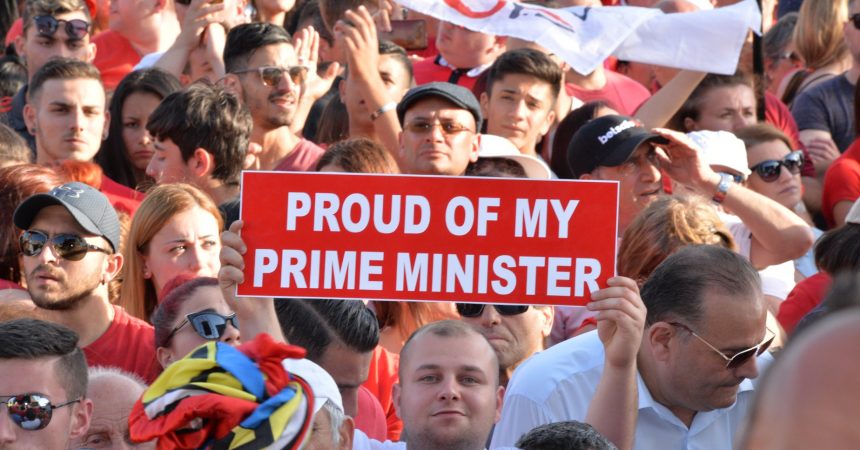US President Donald Trump has made it very clear that he will not take any measures to punish Saudi Arabia for what appears to be the brutal assassination of a dissident journalist in Istanbul.
A butchered journalist is not as valuable as the $110 billion the Saudis plan to spend on US weapons which will be used to massacre thousands of innocent people in Yemen. Trump may be a clown but like his predecessors he knows that the US has too much to lose if it clamps down on Saudi Arabia’s human rights violations.
Some call it realpolitik, others might call it compromise or hypocrisy. I call it selling your soul and whatever you believe in for a few bucks. And this reminds me of the situation in Malta.
Clearly Joseph Muscat’s Labour government is anything but socialist. It has sold three public hospitals to unknown persons hiding behind a network of British Virgin Islands-registered companies.
It has sold public land for a pittance to the likes of Silvio Debono and a shady Jordanian construction company. It allows hunters to shoot protected birds at will. It has struck a deal to buy gas from Azerbaijan at almost twice the market price.
It has allowed big business to dictate the country’s agenda and destroy the environment. It has placed incompetent people in sensitive posts to make sure that all State institutions are captured. It has allowed the likes of Keith Schembri and Konrad Mizzi to go unpunished for opening secret companies in Panama.
It has turned Maltese citizenship into a commodity. And it manipulates public opinion by exploiting social media and neutralising the self-styled independent media.
Yet, Labour’s popularity knows no bounds and many leftist and liberal commentators, academics and activists continue supporting Muscat as if he is the victim of some conspiracy to have him removed from office. They too, for various reasons, have too much to lose.
Some do it because they’ve always voted Labour and cannot accept the idea that their Party has changed into a neo-liberal money-first party. Others simply dislike the PN. Others hate Daphne Caruana Galizia.
Some are accomplices and their silence has a price. Most of them are financially dependent on the Labour government.
Like everyone else they can see the country changing in an equally drastic manner. Yet, they stand aside and look as if its business as usual and criticism is shrugged off as either envy or some sort of international conspiracy to destabilise the country.
Take the murder of Daphne Caruana Galizia. In any other country the vile assassination of a journalist would have drawn the indignation of the whole country irrespective of political allegiances or what they thought of the journalist’s work. Yet, indignation is a feeling shared by a small minority.
This week citizens in Malta and abroad marked the first anniversary of Caruana Galizia’s brutal murder. In years to come we will be in a better position to analyse the impact the assassination has had on the country and what and how things changed in the aftermath of her death.
In 20 years time we might well be speaking of a before and after Daphne. This doesn’t mean that the Malta of 12 months ago was drastically different from today or that the murdered journalist is some Christ-like figure. But her death has marked a clear split in society and put the social and economic ‘revolution’ taking place in Malta under increased international scrutiny.
Admittedly her murder and the democratic shortfalls accentuated by her death has polarised the country even further and in the process Labour has strengthened its hold on the country.
The deep divide is not exclusively about Caruana Galizia and her writings or about the way the investigations into her death have been handled. It runs much deeper.
We can write endless manuscripts detailing Daphne’s virtues and shortcomings. People can also argue that her writing was partly responsible for the deep divisions in Malta. But in doing so they are a few words short of blaming her for her own death.
Daphne herself was a product of the divisive and sectarian nature of Maltese society. And from what we have witnessed in these last 12 months there is very little desire in the corridors of power to change route.
The dualistic system is designed to absorb everything and everyone and the sectarianism is the source of absolute power for the likes of Muscat and PN leader Adrian Delia.
Without discarding various nuances, two distinct camps are taking shape. On one side you have the ‘anti-Daphne brigade’ and on the other you have the so-called ‘Daphne crowd.’ In between there are those who are either indifferent or have a natural aversion to dualist entrenchment and focus their energies on other matters.
And these two camps manifest themselves best in the media. With very few exceptions, most of the esteblished media is more interested in doing the dirty work for the boys and girls in Castille than exposing corruption in Castille.
Those in power have absolutely zero interest in unearthing who is the mastermind behind the atrocious murder of a defenceless woman. They have absolutely no interest in holding power to account because they stand to gain from the status quo. They stand to gain financially from the zero-sum political game which pits two Parties in eternal conflict. They have absolutely no interest in dethroning the crooks in power because it would spell the end of their new-found wealth.
And the saddest thing is that this entrenchment is emboldening the Labour regime. Thanks to the electorate and media’s complicity, divisions grow, pockets run deeper, the poor get poorer, more birds are shot, the environment is irreversibly damaged, traffic gets thicker.
And a better future floats further away, out of sight and out of reach. The country has compromised its future for 30 pieces of silver or in some cases 30 years of loyalty.












